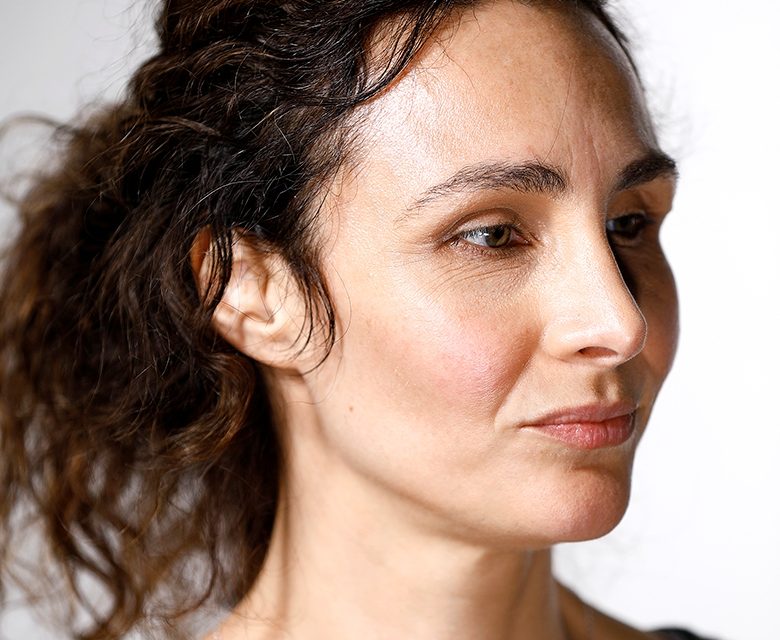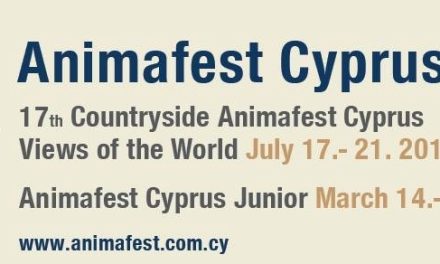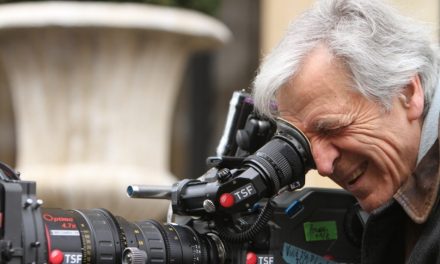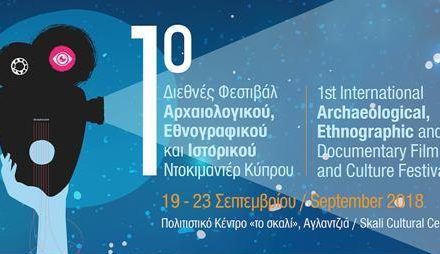Greece 1986-1987, a little before the fall of State Socialism and just at the end of the Cold War. Idealist Anthi, a working mother, is taking care of her family as her husband Christos is away on business in the USSR. Greece is changing before Anthi’s eyes, the world is changing and with them Christos seems to be changing too, in Thelyia Petrakis’ “Bella”.
Film director Thelyia Petraki graduated from CALARTS (USA) with a BA in Film, and from UCL (UK) with an MA in Visual & Material Culture Dept. of Social Anthropology. She has written and directed “Pray” 2012 (Palm Springs, Uppsala, Austin, etc.) distributed by Premium Films, the medium-length documentary “Me And The Others” 2015 that participated in Thessaloniki International Documentary Film Festival, co-produced with COSMOTE TV and “Helga Is In Lund” 2017 that premiered at the Clermont Ferrand Film Festival. Her latest short film “Bella” 2020, participated at the Berlinale Short Form Station, premiered at the Visions du Reel where it was awarded a special mention and won the E-Flux Prize at the Oberhausen Film Festival. She is currently developing her first feature film.
Based on the letters of a couple in the eighties, Thelya Petraki creates in “Bella” a truly interesting female protagonist. The viewer cannot help a bitter smile on account of the things that Bella ignores that may shatter the world that she wants to change. Interviewed by Greek News Agenda* Thelyia Petraki talks about the challenges of creating a period piece like “Bella” and tries to explore why we are not done with the eighties.
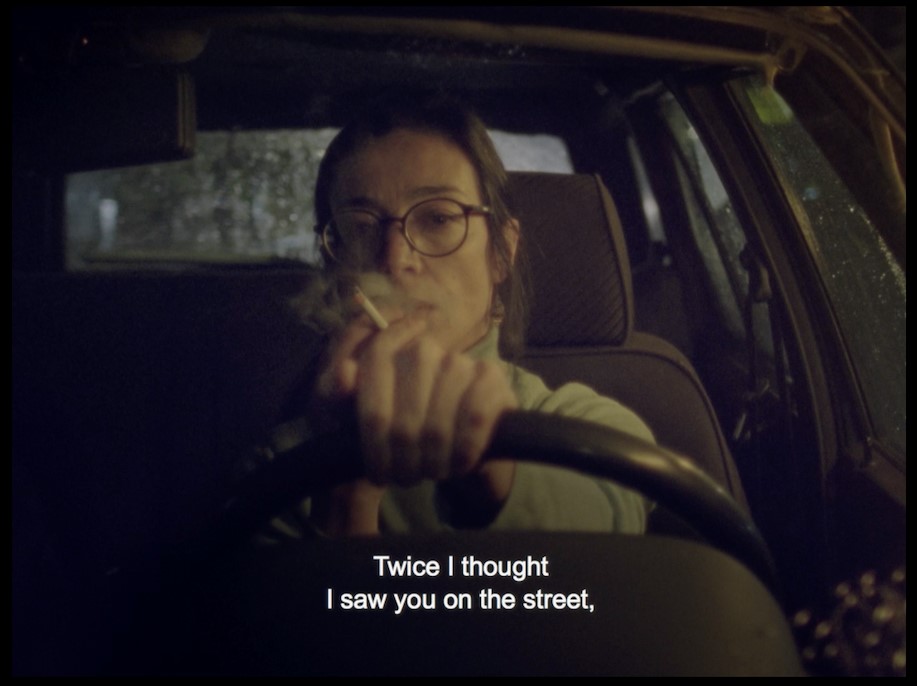
Elena Topalidou in “Bella” (2020) dir. Thelya Petraki
Do you think that your protagonist Anthi represents a typical Greek woman?
Anthi is a woman who lives for an idea. She believes in some kind of revolution and her love is passionate. Although she is capable of coping singlehandedly with everything that surrounds her, she thirsts for companionship and love. She is fragile and strong at the same time, ethereal and down to earth when needed and, even though she dreams big, she can see the straight truth. She may seem unique, a uniqueness that has been enhanced by Elena Topalidou’s great qualities, but I believe that to an extent, she most definitely shares many common characteristics with the typical modern Greek woman and in that respect every woman in general.
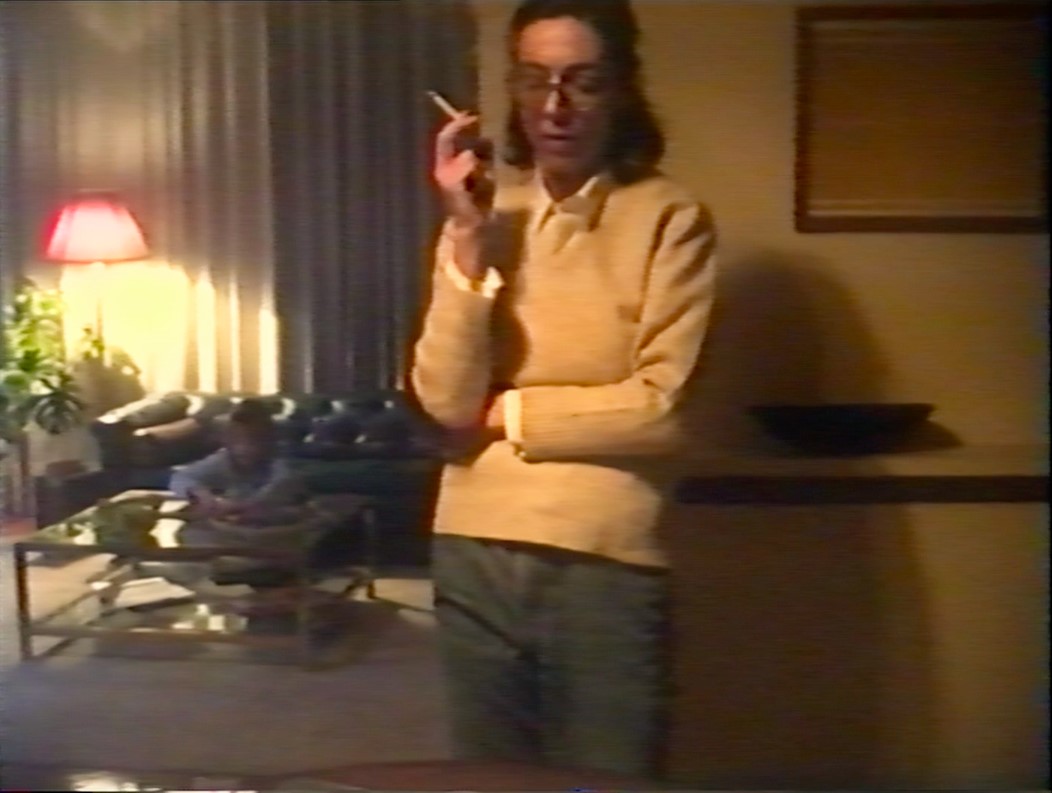
Elena Topalidou in “Bella” (2020) dir. Thelya Petraki
Would you describe “Bella” as a feminist or a political film and how has your anthropological background influenced you?
Bella is an honest account of the daily life of a woman in the 80s. So, when I was making the film, I wasn’t focusing on making a feminist film. On the other hand, I believe that every time a woman leads i.e. as the leading actress, or she as the main subject matter, or as the person in charge (the director, producer) etc. then we are moving a step further from patriarchy. In that sense, “Bella” can be considered a feminist film.
And yes, “Bella” is also a political film. Because the socio-political issues of that era, directly and indirectly, affect the family and consequently Anthi, too.
Regarding the third part of the question, I studied anthropology because I was always interested in the human condition, ultimately, this is one of the main reasons I do cinema. I consider cinema a tool that helps me explore human existence in depth.
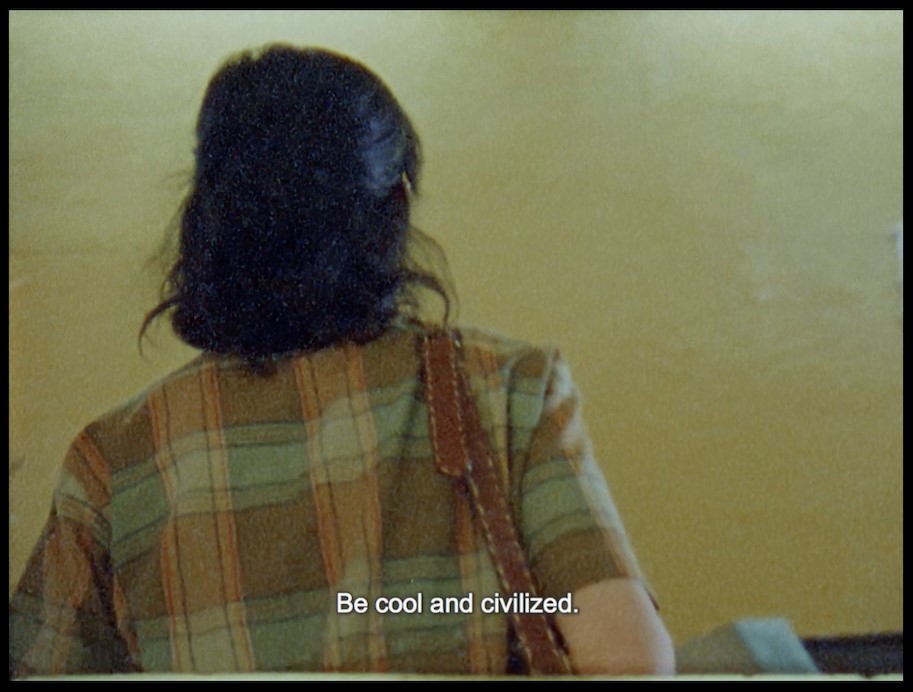
Elena Topalidou in “Bella” (2020) dir. Thelya Petraki
Anthi is in a way ahead of her times, but she is soon going to be left behind by history, as everything is about to change. Are Anthi and her kind, idealist nature an extinct species?
Anthi is a woman who belongs in the baby boomer generation, also known as the “flower power” generation and, specifically in Greece, the generation of the Athens Polytechnic University uprising. In a way, they are the last romantic generation, who as young men and women believed they could make the world a better place. They are also the generation, however, who towards the end of the 80s and the beginning of the 90s gave up on their big dreams and compromised. Thus, the generations that followed grew up with the assumption that trying to change the world is something utopian, an illusion. Consequently, younger generations have been characterized by cynicism and individualism, practices that have cost us dearly. Let us hope that people have realized this and that things are slowly changing.
There is a bittersweet sense of irony in the film caused by the things Anthi doesn’t know. As far as her husband is concerned, we know what he does, but we don’t know what he thinks. Would you like to elaborate on those choices?
The film is based on Anthi’s real letters when her husband Christos was away on business in Moscow, during 1986-87. Although I had Christos’ letters at my disposal I chose to see the story from Anthi’s POV. I wanted to explore and delve deeper into her desires, fears, fantasies, insecurities, dreams, and hopes. My goal is to develop this story into a feature film wherein I will also analyze Christos’ character in more detail. We will learn more about the reason he went to Moscow, what his life there was like, what he discovered, and how this trip changed him forever.
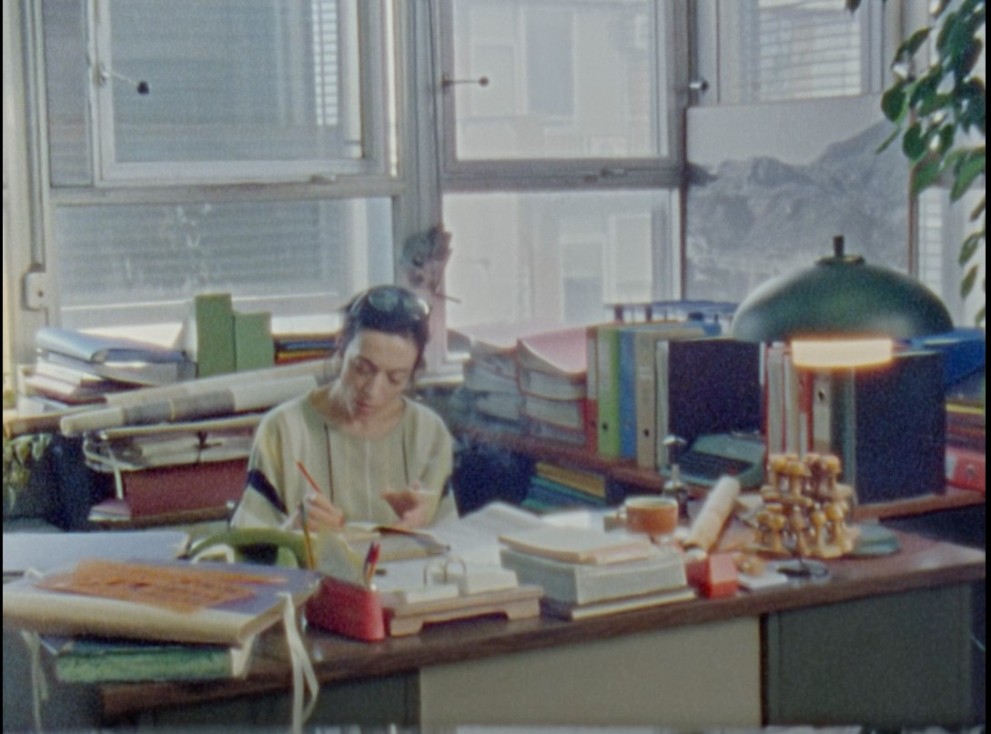
Elena Topalidou in “Bella” (2020) dir. Thelya Petraki
The eighties, the haunting eighties…Why did you choose to place your film in that decade and what makes the eighties still so fascinating a decade?
Due to the nature of the source of inspiration, the choice to place the film in the ’80s was not mine. Considering that the real letters were dated in 1986-87, I had no choice but to research what the historical and cultural context was like back then. To my surprise, those years include a sequence of major events that were bound to change the world forever. Some of these events are already referenced in the short film but most of them will be included in the feature. Of course, while reading those letters I traveled back to my childhood. These memories gave a warm and tender sensation, which I wanted to share with the world.
On the other hand, I can’t pinpoint exactly why we have this obsession with the ’80s. But after the making of “Bella”, I realized that people back then still had a strong sense of hope… and I have a feeling it is mainly this kind of hope that we are missing…
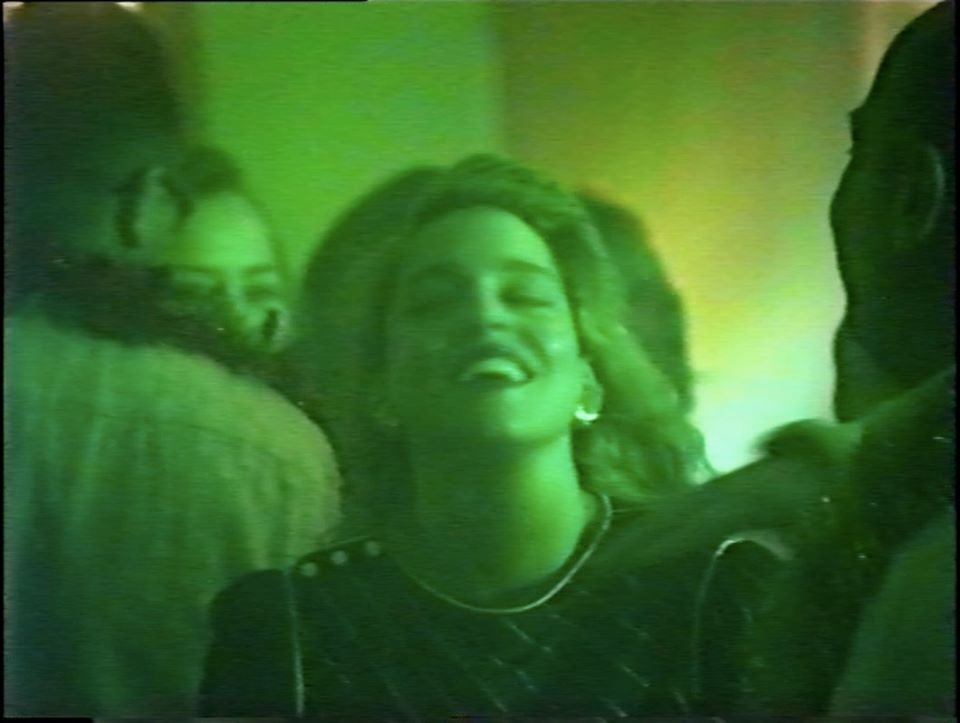
Elena Megreli in “Bella” (2020) dir. Thelya Petraki
What were the challenges of placing the film in the 80’s iconography?
From the very beginning, I approached the movie having in mind two things: The first one is that I wanted to create a collage out of home videos, found footage, news archives, and still pictures that would portray Anthi’s everyday life, her inner world, and the historical facts of 1986 and 1987. This is an approach very typical to the documentary-making process, where different materials will come together like a mosaic to narrate a story, a practice that I find very liberating compared to other forms – and something that I always wanted to experiment with. Moreover, I wanted the feel of the movie to look less staged and as spontaneous as possible. A choice that for a period piece like Bella, was pretty challenging, to be honest. I was lucky enough to collaborate with certain people in the film who, in my eyes, have superpowers:
Our DOP, Manu Tilinsky, who bravely took on the challenge to shoot the whole film with cameras that were being used that period. Our costume designer Vassilia Rozana with her assistant Lena Papamichael who did epic work with the costumes, because they really don’t seem like costumes. Our producer Κostas Tagalakis, who found the locations, which were so authentic and complete in terms of set design that they did not require much tampering to be convincing. Our VFX Supervisor, Pantelis Anastasiadis, was a huge help as he corrected with great skill many scenographic mistakes that we missed while shooting, and everything that reminded us of today. Of course, Myrto Karra, our editor, helped us immensely by getting rid of everything from the shoot that didn’t travel us into the past. So, with the content that we had left, we rewrote the script together during a slow-burning summer.
Finally, the actors Elena Topalidou, Nikos Kouris, Elena Mengreli, and the children Adonis Hatzipopis and Theofania Dokou were a major part of the film iconography. Beyond their performances, their physiognomies and faces inspired me to delve deeper and to recreate the 80’s through Anthi’s eyes. Because, as John Cassavetes said, “The greatest location in the world is the human face”.
* Interview by Florentia Kiortsi
“Bella” by Thelyia Petraki | Trailer by Thelyia Petraki on Vimeo.

